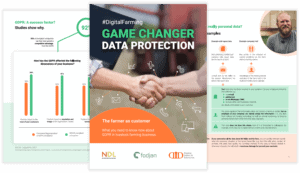
Just a few seats left: NDL digital leader roadtrip 2024
News about our NDL roadtrip 2024, program and tickets
– a blog post by podcaster Christian Völkner from Kuhverstand –
What kind of online education offers are there, how do they differ and what should you look for when choosing?
At the beginning of this article I have to admit that I am biased. I am a cow-minded trainer and not only offer further education on the Internet myself, I have also made use of many further education offers on the Internet and have had many good experiences there. However, I must also confess that I am a critical website visitor. I question a lot and have avoided many dubious offers. There is a lot of bullshit on the net, but there are also many people who pursue their passion with full vigor and provide great educational offers on the Internet.
how well things can be made accessible via videos, podcast, and PDF worksheets. I myself really enjoy being able to choose my own pace of learning. It’s amazing how quickly course participants in a Facebook group support each other and share their experiences.
Often, however, you don’t know the seller of an online education course that well. After all, you haven’t met him in person and looked him in the eye, so there are a few things to check before you buy.
Here my checklist:
Online education is everything that enables further education supported by the Internet. It thus encompasses all forms of continuing education – from looking things up in Wikipedia to sophisticated online degree programs.
It is always necessary to look at each individual case to see where the advantages and disadvantages of any online offer lie. Because in the meantime, online is also often mixed with offline. For example, I once took advantage of an offer on the topic of “Developing your business model. I was coached online in an Internet forum, but the offer also included a traditional 2-day seminar.
Advantages are:
Disadvantages are:
Free is usually blog articles, podcast (audio posts), YouTube videos and the like. This free form is also described in technical language as content marketing. At its core, it is about building trust through expert free content. This trust is then necessary to sell products or services. This is nothing reprehensible and also nothing new. The free sample magazine, the feed ration calculation of the land trade or the party with the Thermomix is in principle nothing else. Only just off-line.
With the liable to pay the costs offers one gets more to offer. Often it is a particularly good preparation of a topic, the accompaniment through a process or the achievement of a defined goal, such as the certificate of expertise in plant protection. Sometimes it is also the access to experts, expert knowledge or learning in a group that makes the special value of an online education offer.
Here is an overview of some online education offerings in german-speaking agriculture:
Provider
An offer as an example
Sachkunde Pflanzenschutz
Das AMAZONE SmartLearning Programm
Elite-Herdenmanager Zertifikatskurs & Videos
E-Learning-Videos zur Klauengesundheit
E-Learning-Videos für Rinderpraktiker
Ketose-Präventions-Kurs
Not everything offered online makes sense. It is worth being critical and curious. As is so often the case, it makes sense to weigh things up before making a purchase: What will it cost me? What do I get out of the offer? The advantages of online, such as eliminated travel times and costs, cannot be dismissed. In addition, learning online is currently a special experience for many participants. Well-prepared learning material is simply fun and moves participants forward.
Online education offerings are particularly widespread in English-speaking countries and among the mass market (e.g.: fitness and nutrition). In agriculture, online education offerings are in their infancy. I would like to see more offerings for agriculture. In particular, networking among participants should be encouraged. Learning at eye level is particularly effective and motivates people to put what they have learned into practice.
Greetings from Christian Völkner from Kuhverstand podcast.

Just a few seats left: NDL digital leader roadtrip 2024
News about our NDL roadtrip 2024, program and tickets

New whitepaper: Game Changer Data Protection and the farmer as customer
GDPR compliance can be a hidden champion strategy for you. This is why In our new free NDL whitepaper we discuss and clarify …

Covid provides a digitalization boost in feed consulting
Since the outbreak of the Covid pandemic in January 2020, the media have been restlessly filled with our crises: Hoarding purchases, milk price crisis, Tönnies scandal. But did Covid drive digitization in the livestock industry?
Copyright © 2023 NDL. All rights reserved. | Privacy Policy | Imprint | Cookies